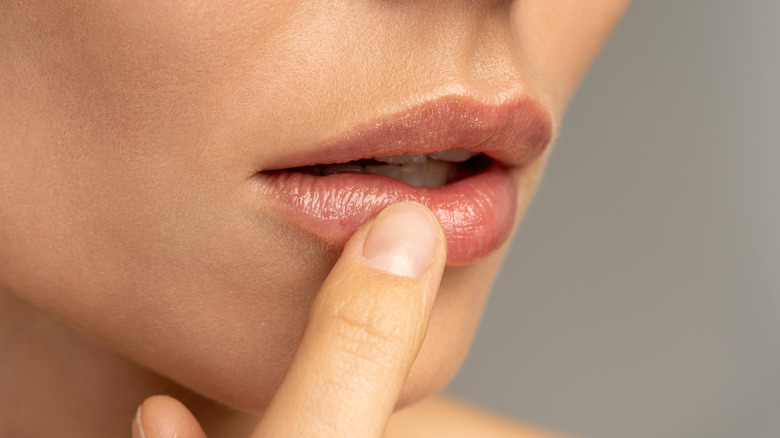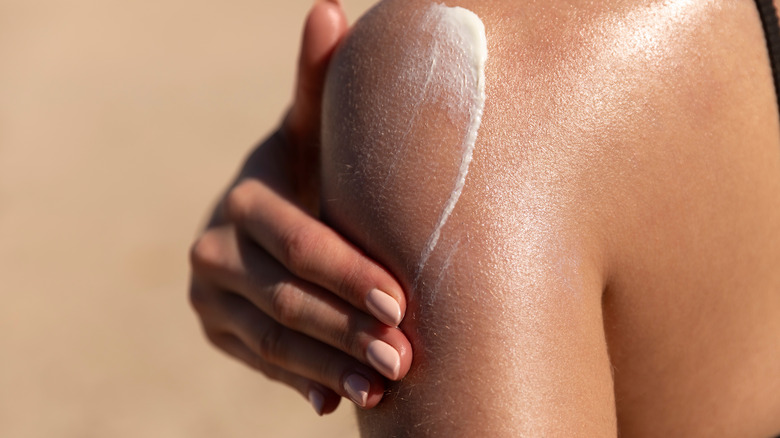How Should You Treat Sunburnt Lips?
When heading outside on a sunny day, most of us are good about applying sunscreen to protect our faces and bodies from harsh UV rays. But we don't always remember to protect our lips. While the lips are more sensitive than the rest of the skin on our faces, it's not practical (or very safe) to slather sunscreen on our mouths (via Allure). However, without providing some type of sun protection on that area, the lips can easily get sunburned after a few hours outside.
Sunburnt lips present similar symptoms as a sunburn anywhere else on your body. A mild sunburn can cause dryness, redness, and irritation around the mouth. Your lips may also feel warm to the touch. A more serious sunburn can cause sensitivity, pain, blisters, and bleeding on the lips. These symptoms will set in a few hours after the burn occurs and will last for three to five days. If you have a moderate to severe burn, you may also deal with your skin shedding and peeling as the area heals.
Treating sunburnt lips is also similar to treating a sunburn somewhere else on your body. Applying a cool compress to the area can soothe your skin and help any swelling go down. Aloe vera gel can also have a soothing effect. You can also take an over-the-counter anti-inflammatory medication to help with pain and swelling.
How to avoid sunburns
Avoiding a sunburn on your lips or anywhere else on your body is as simple as applying sunscreen regularly. For your lips, you can apply a lip balm with SPF 30 or higher at least 15 minutes before sun exposure (via Allure). Lip balm can be wiped off more easily than sunscreen on your body, so be sure to reapply after eating, drinking, and swimming.
Applying sunscreen before going outside is extremely important for your health. UV exposure from the sun can lead to a myriad of skin issues, including wrinkles, dark spots, and skin cancer. According to the Skin Cancer Foundation, wearing SPF 15 sunscreen every day can reduce your risk of developing skin cancer by up to 50%. You should choose at least SPF 30 sunscreen if you're going to be outside, as this will provide even more protection from direct rays. It should be applied to all skin that is exposed to light, including your face, ears, hands, arms, and feet. Sunscreen also needs to be reapplied every two hours to be most effective. You should also remember to wear sunscreen on cloudy days, as UV rays can still get through the clouds.


